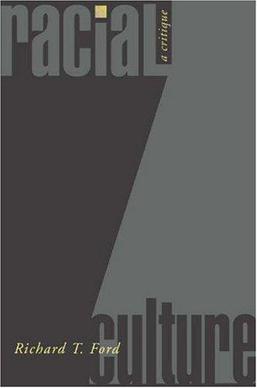Feminism is a range of socio-political movements and ideologies that aim to define and establish the political, economic, personal, and social equality of the sexes. Feminism holds the position that societies prioritize the male point of view and that women are treated unjustly in these societies. Efforts to change this include fighting against gender stereotypes and improving educational, professional, and interpersonal opportunities and outcomes for women.

The term multiculturalism has a range of meanings within the contexts of sociology, political philosophy, and colloquial use. In sociology and in everyday usage, it is a synonym for "ethnic pluralism", with the two terms often used interchangeably, and for cultural pluralism in which various ethnic groups collaborate and enter into a dialogue with one another without having to sacrifice their particular identities. It can describe a mixed ethnic community area where multiple cultural traditions exist or a single country within which they do. Groups associated with an indigenous, aboriginal or autochthonous ethnic group and settler-descended ethnic groups are often the focus.
A backlash is a strong adverse reaction to an idea, action, or object. It is usually a reflection of a normative resentment rather than a denial of its existence. In Western identitarian political discourse, the term is commonly applied to instances of bias and discrimination against marginalized groups. In this form of discourse, backlash can be explained as the response- or counter reaction- to efforts of social progress made by a group to gain access to rights.

Feminist sociology is an interdisciplinary exploration of gender and power throughout society. Here, it uses conflict theory and theoretical perspectives to observe gender in its relation to power, both at the level of face-to-face interaction and reflexivity within social structures at large. Focuses include sexual orientation, race, economic status, and nationality.

Intersectionality is an analytical framework for understanding how a person's various social and political identities combine to create different modes of discrimination and privilege. Intersectionality identifies multiple factors of advantage and disadvantage. Examples of these factors include gender, caste, sex, race, ethnicity, class, sexuality, religion, disability, weight, and physical appearance. These intersecting and overlapping social identities may be both empowering and oppressing. However, little good-quality quantitative research has been done to support or undermine the theory of intersectionality.

Patricia Hill Collins is an American academic specializing in race, class, and gender. She is a distinguished university professor of sociology emerita at the University of Maryland, College Park. She is also the former head of the Department of African-American Studies at the University of Cincinnati, and a past president of the American Sociological Association (ASA). Collins was the 100th president of the ASA and the first African-American woman to hold this position.
Standpoint theory, or standpoint epistemology, is a theory for analyzing inter-subjective discourses. Standpoint theory proposes that authority is rooted in individuals' personal knowledge and perspectives and the power that such authority exerts.
Susan Moller Okin was a liberal feminist political philosopher and author.
Saba Mahmood (1961–2018) was professor of anthropology at the University of California, Berkeley. At Berkeley, she was also affiliated with the Center for Middle Eastern Studies, Institute for South Asia Studies, and the Program in Critical Theory. Her scholarly work straddled debates in anthropology and political theory, with a focus on Muslim majority societies of the Middle East and South Asia. Mahmood made major theoretical contributions to rethinking the relationship between ethics and politics, religion and secularism, freedom and submission, and reason and embodiment. Influenced by the work of Talal Asad, she wrote on issues of gender, religious politics, secularism, and Muslim and non-Muslim relations in the Middle East.
Anne Phillips, is Emeritus Professor of Political Theory at the London School of Economics (LSE), where she was previously Graham Wallas Professor of Political Science. She was elected a Fellow of the British Academy in 2003.
The following events related to sociology occurred in the 1990s.

Racial Culture: A Critique is a 2005 non-fiction book by American author and Stanford Law School professor Richard T. Ford which raises critical questions regarding the somewhat popular and common presumption of political multiculturalism that social categories emerge from as a result of distinctive cultural practices. Ford argues against legislation that prevents discrimination on the basis of cultural practices and details specific examples in support of this argument.
Criticism of multiculturalism questions the ideal of the maintenance of distinct ethnic cultures within a country. Multiculturalism is a particular subject of debate in certain European nations that are associated with the idea of a nation state. Critics of multiculturalism may argue against cultural integration of different ethnic and cultural groups to the existing laws and values of the country. Alternatively critics may argue for assimilation of different ethnic and cultural groups to a single national identity.
In sociology, a superwoman is a Western woman who works hard to manage multiple roles of a worker, a homemaker, a volunteer, a student, or other such time-intensive occupations. The notion of "superwoman" differs from that of "career woman" in that the latter one commonly includes sacrifice of the family life in favor of career, while a superwoman strives to excel in both.
Feminist political theory is an area of philosophy that focuses on understanding and critiquing the way political philosophy is usually construed and on articulating how political theory might be reconstructed in a way that advances feminist concerns. Feminist political theory combines aspects of both feminist theory and political theory in order to take a feminist approach to traditional questions within political philosophy.
The word destabilisation can be applied to a wide variety of contexts such as attempts to undermine political, military or economic power.

The personal is political, also termed The private is political, is a political argument used as a rallying slogan of student movement and second-wave feminism from the late 1960s. In the context of the feminist movement of the 1960s and 1970s, it was a challenge to the nuclear family and family values. The phrase was popularized by the publication of a 1969 essay by feminist Carol Hanisch under the title "The Personal Is Political" in 1970, and has been repeatedly described as a defining characterization of second-wave feminism, radical feminism, women's studies, or feminism in general. It has also been used by some women artists as the underlying philosophy for their art practice.

Oyèrónkẹ́ Oyěwùmí is a Nigerian gender scholar and full professor of sociology at Stony Brook University. She acquired her bachelor's degree in political science at the University of Ibadan in Ibadan, Nigeria and went on to pursue her graduate degree in Sociology at the University of California, Berkeley. Oyěwùmí is the winner of the African Studies Association's 2021 Distinguished Africanist Award, which recognizes and honours individuals who have contributed a lifetime of outstanding scholarship in African studies combined with service to the Africanist community.

An Introduction to Animals and Political Theory is a 2010 textbook by the British political theorist Alasdair Cochrane. It is the first book in the publisher Palgrave Macmillan's Animal Ethics Series, edited by Andrew Linzey and Priscilla Cohn. Cochrane's book examines five schools of political theory—utilitarianism, liberalism, communitarianism, Marxism and feminism—and their respective relationships with questions concerning animal rights and the political status of (non-human) animals. Cochrane concludes that each tradition has something to offer to these issues, but ultimately presents his own account of interest-based animal rights as preferable to any. His account, though drawing from all examined traditions, builds primarily upon liberalism and utilitarianism.
White feminism is a term which is used to describe expressions of feminism which are perceived as focusing on white women but are perceived as failing to address the existence of distinct forms of oppression faced by ethnic minority women and women lacking other privileges. The term has been used to label and criticize theories that are perceived as focusing solely on gender-based inequality. Primarily used as a derogatory label, "white feminism" is typically used to reproach a perceived failure to acknowledge and integrate the intersection of other identity attributes into a broader movement which struggles for equality on more than one front. In white feminism, the oppression of women is analyzed through a single-axis framework, consequently erasing the identity and experiences of ethnic minority women the space. The term has also been used to refer to feminist theories perceived to focus more specifically on the experience of white, cisgender, heterosexual, able-bodied women, and in which the experiences of women without these characteristics are excluded or marginalized. This criticism has predominantly been leveled against the first waves of feminism which were seen as centered around the empowerment of white middle-class women in Western societies.








